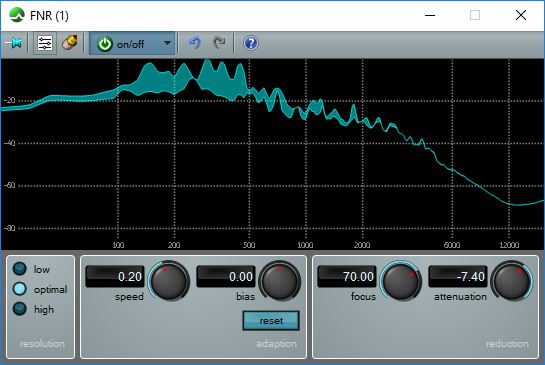FNR for forensic audio investigation

Since the advent of audio forensics, one scenario has proved to be stubbornly problematic and often impossible to solve. This is the problem of revealing and increasing the intelligibility of voices recorded in noisy and rapidly changing environments such as moving vehicles, crowded cafés, and other public spaces. The forensic audio community encounters this time and again and, while the venues and scenarios may vary greatly, they all share a common difficulty. How do you reveal a wanted speaker when the signal to noise ratio is very poor or if the unwanted signal is other human voices?
The answer is FNR, an automated noise reduction system for speech recordings suffering from poor signal/noise ratios. It's capable of performance that would have seemed impossible just a few years ago and, because it's adaptive, it reacts - and reacts quickly - to changes in the background noise, and is capable of revealing much more of the wanted signal without having anything like as much effect on the wanted voices as forensic filtering systems from elsewhere.
FNR is extremely quick and simple to use. It requires no noise fingerprint and constantly adapts to the noise present in the input signal. Its controls determine the nature of the noise removal by allowing the user to adjust the spectral resolution of the process as well as factors relating to its adaption and noise reduction.